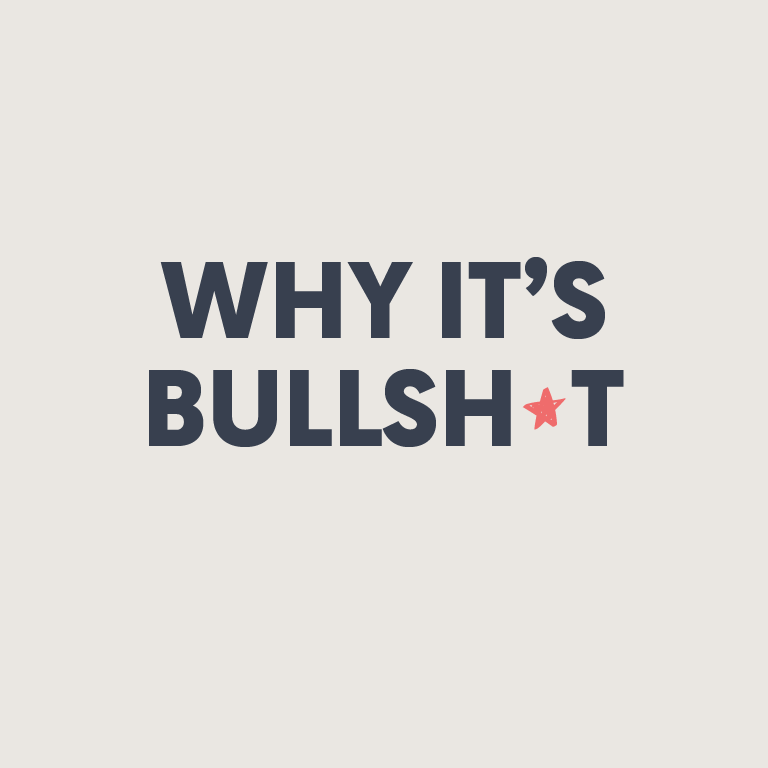Branding Myths - Differentiate or Die
Customers rarely perceive differentiation, and the few that do, shouldn't be the focus of your marketing efforts.
For anyone new here, I’m the founder of Woo Punch, a brand consultancy rooted in evidence-based brand design. I write about the evidence that debunks brand purpose, differentiation, brand love, loyalty marketing, customer personas, color psychology, mission statements, customer engagement, AdTech, and “hustle culture.”
Want to chat about your brand? Schedule a free intro call.
THE “DIFFERENTIATE OR DIE” MYTH
To stand out in the market, you must give customers a compelling reason to buy your brand, or you will die.
If you don’t, branding “gurus” Donald Miller, Simon Sinek, and Marty Neumeier will come and murder you.
Differentiation is how your brand is set apart from the competition.
Sounds great, right? Not so fast.
CONCEPTUAL VS FUNCTIONAL DIFFERENTIATION
To understand why “Differentiate or Die” is bullshit, we must break differentiation into two different types. Conceptual differentiation and functional differentiation.
CONCEPTUAL DIFFERENTIATION
Conceptual differentiation includes any type of differentiation that is intangible or abstract. For example, types of conceptual differentiation include brand personality, brand story, emotional attributes, a brand’s reputation, brand purpose, tone of voice, etc.
Differentiation evangelists claim that, given two functionally identical brands, conceptual differentiation convinces customers to buy one brand over the other.
This naturally assumes that customers know about your brand’s intangible or abstract ideas. This also assumes that most customers make conscious decisions about which brands to buy.
FUNCTIONAL DIFFERENTIATION
Functional differentiation, on the other hand, includes any type of tangible or core differences between brands. Types of functional differentiation include drastic differences in pricing, distribution channels, convenience, quality, etc. Functional differentiation can be effective when it changes a brand’s functionality at its core, and it is far more effective in all cases than conceptual differentiation.
For example, in most people’s minds, BMW is functionally differentiated from Honda as a luxury brand, but is it conceptually distinguished from Audi or Mercedes? Likewise, Uber is functionally differentiated from Yellow Cab, but is it functionally OR conceptually differentiated from Lyft?
While functional differentiators have their place and are much more effective than conceptual ones, they still won’t help you grow (or maintain) your market share long-term alone.
If you prioritize functional differentiation, other brands will eventually copy your good idea or ignore your bad idea. Uber used to be the only ridesharing service, but then came Lyft. VRBO is now threatening Airbnb with more ads. Uber and Airbnb can’t rely on their functional differentiators anymore.
If functional differentiation can only get you so far, is conceptual differentiation the key to brand growth long-term? For decades, gurus have gone unchecked, claiming a resounding “Yes!”
Are they right?
The theory of conceptual differentiation has been around since the 1930s, but few people have questioned its effectiveness. Two things are deemed necessary for conceptual differentiation:
Customers must perceive a meaningful differentiation between you and your competitors.
They must find value in what makes them different.
The logic goes something like this:
If you can target a narrow customer base with a conceptual reason to identify with your brand, Then those customers will become loyal and promote your brand to all their friends. Skip differentiation, and you will die. Prioritize it, and you will grow.
If this logic were true, the following statements would also have to be true:
Customers perceive conceptual differentiation.
Successful brands have different customer bases than their competitors since they target different customer bases.
Brands grow by prioritizing heavy buyers and loyal customers.
There are a few brands that differentiation evangelists like to use as examples. The most common I’ve seen are Coca-Cola and Apple. In their minds, customers think of “optimism,” “happiness,” or “the real thing” when thinking of Coca-Cola. When thinking of Apple, customers think of “innovation,” “style,” or “revolution.” Gurus claim these perceptions are the reason for Coca-Cola and Apple’s success.





